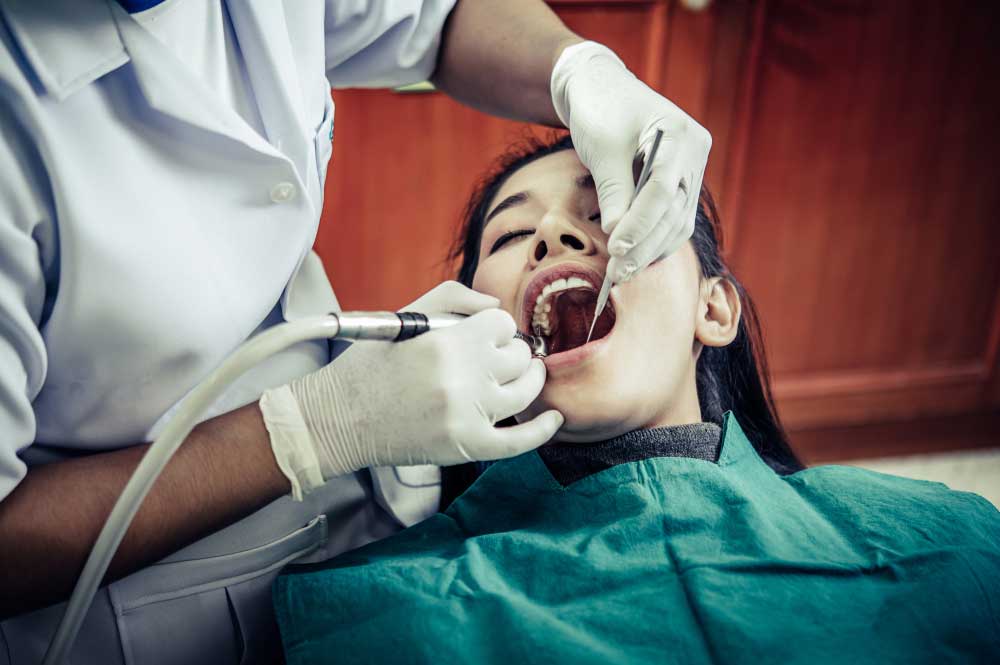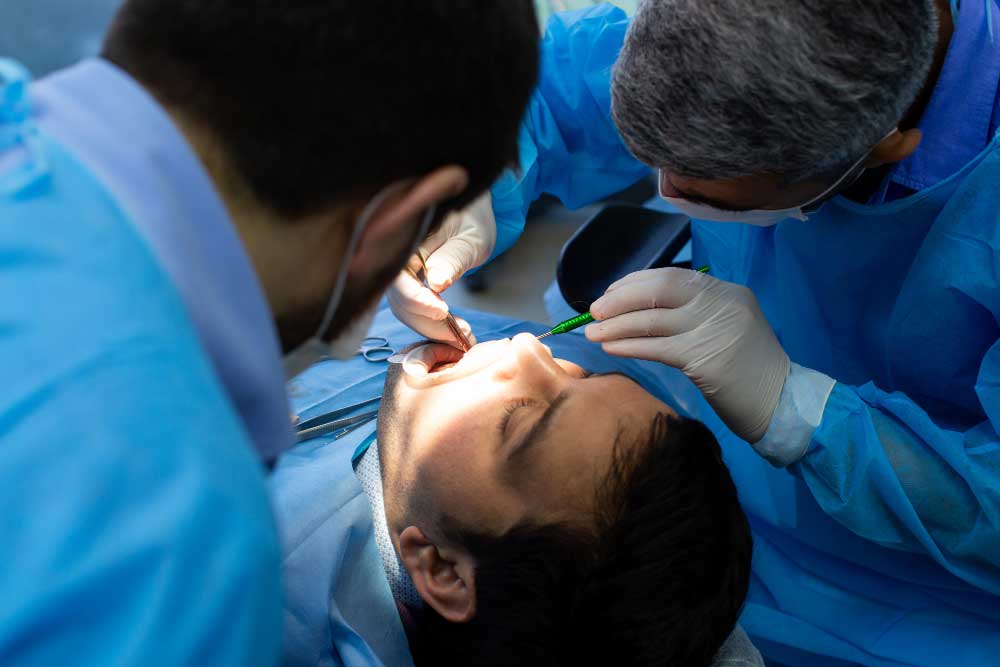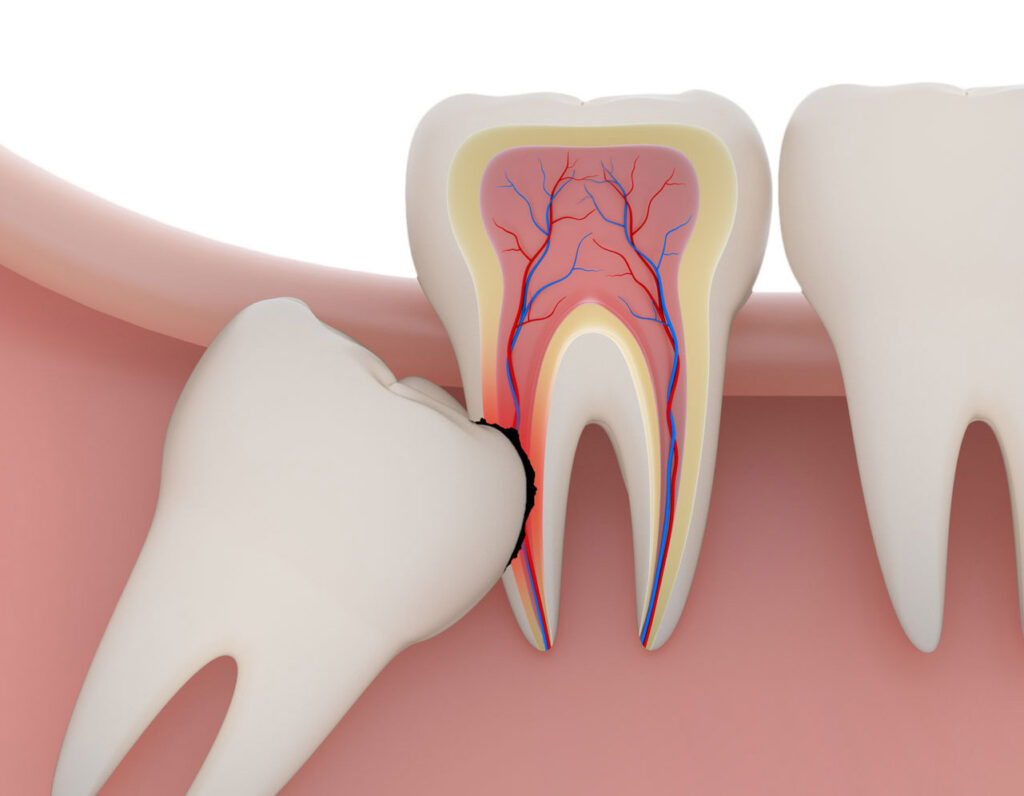Table of Contents
ToggleWisdom teeth are the third molars that typically emerge during the late teens or early twenties. For many, their arrival can be accompanied by discomfort or complications, leading to the common practice of wisdom teeth removal Sydney. However, not everyone requires the procedure. The question arises: do all wisdom teeth need to be removed? The answer depends on several factors, including alignment, health, and individual circumstances. We’ll explore the scenarios when removing wisdom teeth is necessary, when it isn’t, and what you should consider before making the decision.
Understanding Wisdom Teeth: A Quick Overview
Wisdom teeth are evolutionary relics from our ancestors, who needed extra molars to chew coarse foods like roots and raw meat. With changes in diet and jaw structure over time, many people now find their mouths too small to accommodate these extra teeth. This often leads to complications such as impaction, misalignment, or infections.
When Do Wisdom Teeth Need to Be Removed?
Wisdom teeth removal is often recommended in the following cases:
Impaction
Impacted wisdom teeth occur when there isn’t enough room for them to emerge properly. They may grow at an angle, remain trapped under the gumline, or push against neighboring teeth. This can lead to pain, swelling, and even infections.
Pain and Discomfort
Persistent pain in the back of your jaw could indicate that your wisdom teeth are causing issues. If left unchecked, the discomfort can escalate, affecting daily activities like eating and speaking.
Risk of Damage to Nearby Teeth
Wisdom teeth can exert pressure on adjacent molars, potentially causing them to shift or become damaged. This misalignment can require further dental interventions, such as braces.
Gum Infections and Decay
Wisdom teeth can be hard to clean due to their position at the back of the mouth. This makes them more susceptible to cavities and gum infections, which can spread to surrounding areas.
Cysts or Tumors
In rare cases, impacted wisdom teeth can lead to the formation of cysts or tumors, which can damage the jawbone and nearby teeth.
When Wisdom Teeth Don’t Need to Be Removed
There are scenarios where wisdom teeth can remain in place without causing harm:
Proper Alignment
If your wisdom teeth are properly aligned, emerge fully, and don’t impact neighboring teeth, there may be no need for removal.
Healthy Tissue
Wisdom teeth surrounded by healthy gum tissue and free of cavities or infections can be left as they are.
Sufficient Space
Some people have enough room in their mouths to accommodate their wisdom teeth without crowding or discomfort.
Age and Stability
For older individuals whose wisdom teeth have remained stable and asymptomatic for years, the risk of future complications may be minimal.
Factors to Consider Before Removing Wisdom Teeth
Deciding whether to remove wisdom teeth requires careful consideration of several factors. Here are some points to discuss with your dentist or oral surgeon:
Risk of Future Problems
Even if your wisdom teeth aren’t causing issues now, your dentist might recommend removal as a preventive measure to avoid potential complications later.
Wisdom Teeth Removal Cost
The cost of the procedure can vary depending on complexity and location. For instance, those seeking wisdom teeth removal cost should explore pricing options and check whether their insurance covers the procedure.
Recovery Process
The recovery process can vary from person to person. For some, wisdom teeth removal recovery is quick and painless, while others may experience swelling and discomfort for several days.
Location of Wisdom Teeth
The position of your wisdom teeth plays a significant role in whether removal is necessary. Impacted or partially erupted teeth are more likely to cause problems.
What Are the Alternatives to Wisdom Teeth Removal?
In cases where removal isn’t immediately necessary, there are alternative approaches:
Regular Monitoring
Routine dental check-ups and X-rays can help monitor the position and health of your wisdom teeth, allowing early intervention if issues arise.
Improved Oral Hygiene
Maintaining excellent oral hygiene can minimize the risk of decay or infection, even if your wisdom teeth are difficult to reach.
How to Decide if Wisdom Teeth Removal Is Right for You
If you’re experiencing symptoms like pain, swelling, or infections, it’s important to consult a professional for advice. Those looking for wisdom teeth removal near me in Sydney can find experienced oral surgeons who can assess their situation and recommend the best course of action. If removal is necessary, understanding the wisdom teeth removal price upfront can help you plan for the procedure without unexpected surprises.
Final Thoughts
Not all wisdom teeth need to be removed, but ignoring potential issues can lead to significant problems down the road. By assessing the health and position of your wisdom teeth with the help of a dental professional, you can make an informed decision. For those in Sydney, exploring wisdom teeth removal services and their associated costs can help you prepare for a smooth and stress-free experience.
Frequently Asked Questions:
1. How can I tell if my wisdom teeth are growing in properly?
Even if you’re not experiencing pain, there are signs to monitor:
- Regular visits to the dentist for X-rays can show the angle and growth pattern of wisdom teeth.
- If you notice changes in your bite or feel pressure at the back of your jaw, it’s worth checking with your dentist.
2. What are the types of anesthesia used during wisdom teeth removal?
There are several anesthesia options for wisdom teeth removal, depending on your comfort and the complexity of the procedure:
- Local Anesthesia: Numbs the specific area but keeps you awake.
- Sedation Anesthesia: You’ll remain conscious but relaxed and drowsy.
- General Anesthesia: You’ll be completely unconscious during the procedure.
3. Are there alternatives to surgical wisdom teeth removal?
In rare cases, if wisdom teeth erupt fully and don’t pose immediate issues, a dentist might suggest monitoring them closely. Treatments like antibiotics may be used temporarily to address infections, but these are not long-term solutions.
4. What should I do if I experience unusual symptoms after removal?
While some discomfort is normal, unusual symptoms like the following require immediate attention:
- Persistent bleeding after 24 hours.
- Fever or chills, which could indicate infection.
- Severe swelling that doesn’t subside after a few days.
Contact your dentist or oral surgeon if you experience these symptoms.
5. Can wisdom teeth removal affect the alignment of my teeth?
While removal doesn’t directly straighten or misalign teeth, pressure from impacted wisdom teeth can cause crowding before extraction. Post-removal, some patients may feel a shift in their bite as their jaw adjusts, but this is temporary in most cases.
6. How do dietary restrictions work before and after wisdom teeth removal?
- Before Removal: Avoid eating or drinking for several hours if undergoing general or sedation anesthesia.
- After Removal: Stick to soft foods like soups, mashed potatoes, or smoothies. Avoid straws, as suction can lead to dry socket.
7. Can wisdom teeth grow back after removal?
No, wisdom teeth cannot grow back once they are fully removed, including their roots. However, some people mistakenly believe their wisdom teeth are regrowing due to a phenomenon called “phantom tooth pain,” which is similar to sensations experienced after losing a limb. In rare cases, if a portion of the tooth or root is left behind during extraction, it could cause discomfort or require additional treatment. For peace of mind, follow up with your dentist post-surgery to ensure complete removal and proper healing.




